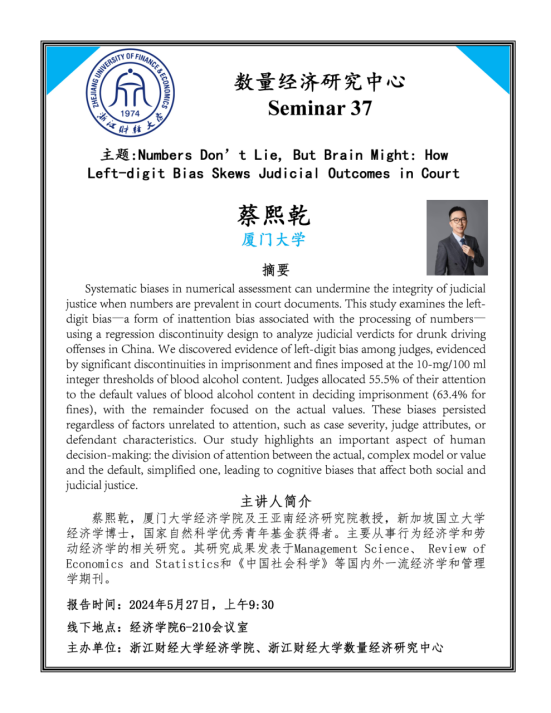Numbers Don’t Lie, But Brain Might: How Left-digit Bias Skews Judicial Outcomes in Court
Abstract:
Systematic biases in numerical assessment can undermine the integrity of judicial justice when numbers are prevalent in court documents. This study examines the left-digit bias—a form of inattention bias associated with the processing of numbers—using a regression discontinuity design to analyze judicial verdicts for drunk driving offenses in China. We discovered evidence of left-digit bias among judges, evidenced by significant discontinuities in imprisonment and fines imposed at the 10-mg/100 ml integer thresholds of blood alcohol content. Judges allocated 55.5% of their attention to the default values of blood alcohol content in deciding imprisonment (63.4% for fines), with the remainder focused on the actual values. These biases persisted regardless of factors unrelated to attention, such as case severity, judge attributes, or defendant characteristics. Our study highlights an important aspect of human decision-making: the division of attention between the actual, complex model or value and the default, simplified one, leading to cognitive biases that affect both social and judicial justice.
报告时间:2024年5月27日,上午9:30
线下地点:9499www威尼斯6-210会议室
主办单位:9499www威尼斯、浙江财经大学数量经济研究中心
嘉宾简介:
蔡熙乾,厦门大学9499www威尼斯及王亚南经济研究院教授,新加坡国立大学经济学博士,国家自然科学优秀青年基金获得者。主要从事行为经济学和劳动经济学的相关研究。其研究成果发表于Management Science、 Review of Economics and Statistics和《中国社会科学》等国内外一流经济学和管理学期刊。
